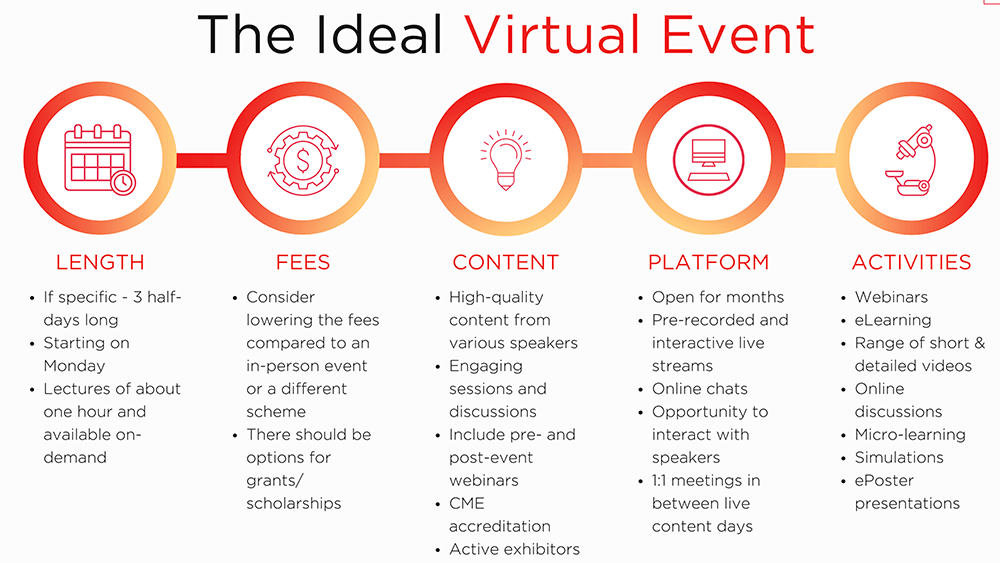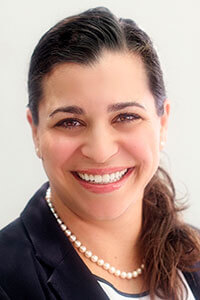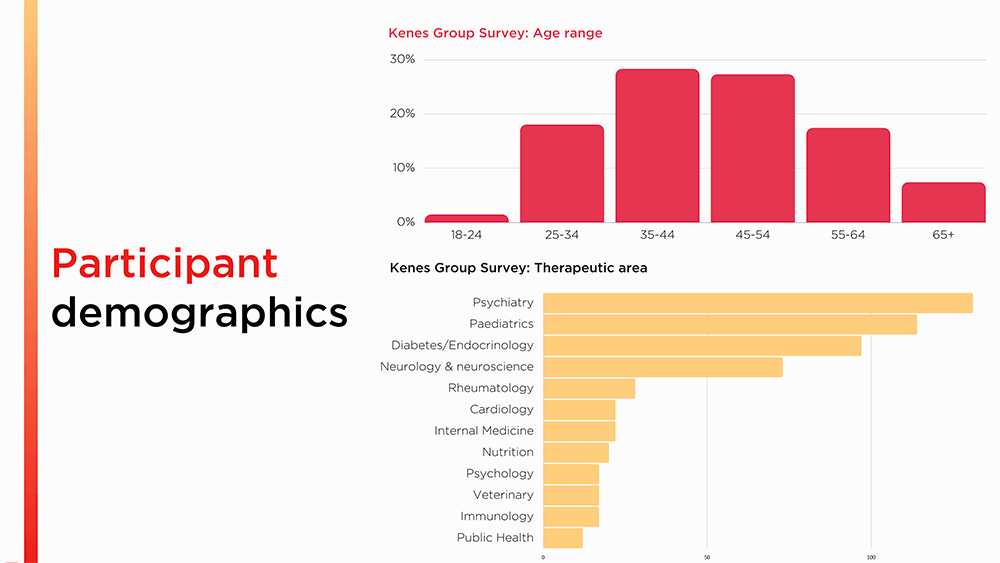
According to results from a recent Kenes Group study, health-care professionals value high-quality speakers and discussions, but they also want a virtual platform that affords them flexibility, time, and opportunity to fully absorb them.
When Kenes Group, a Geneva, Switzerland–based professional conference organizer, shifted to hosting virtual events for its medical and science groups this past April, company leaders knew they needed more insight into the minds of their health-care practitioner (HCP) attendees. In July, they surveyed more than 800 past attendees and combined those responses with nearly 2,000 post-event evaluations from three virtual medical meetings.
The result — a nearly 30-page study, “Healthcare practitioners reveal what they really think of virtual events” — reveals that, no surprise, content is still king. HCPs still value high-quality speakers and discussions, but they also want a virtual platform that affords them flexibility, time, and opportunity to fully absorb them.

“This is a process, and no one of us is there yet,” said Audrey Alloul, vice president of sales and business development at Kenes Group, on redesigning scientific and medical conferences for virtual consumption.
According to the study, the “ideal” virtual event has the following components:
- Timeframe split into three half-days, starting on a Monday
- Lecture sessions lasting one hour (on-demand preferred)
- Lower price tag than an in-person event
- Engaging content with a range of speakers and live discussions
- CME accreditation
- An always-open platform that supports both pre-recorded and live-streamed content
- A variety of learning formats and activities
So what did come as a surprise? It’s not necessarily easier for an HCP to attend conferences right now, even though they’re virtual. They have less time to take off, and the financial support isn’t necessarily there either. Some respondents reported that grants have been withdrawn due to the coronavirus, for example. And most want a lower registration fee — 41 percent expect to pay half the in-person charge, and 25 percent expect an 80-percent lower fee.
“It’s taking time for the mind frame to change,” Audrey Alloul, vice president of sales and business development at Kenes Group, told Convene. “And the fact that the institutions, the hospitals, the regulations are taking much longer to adapt is a bit surprising.”
Offering content on-demand, beyond the main timeframe, makes virtual events more attractive to time-pressed attendees, Alloul said. She also advises minimizing the length of sessions and the event as a whole. According to the survey, more than half — 56 percent — of respondents said one to two days is an ideal duration for a virtual event. Half-day programs were also preferred. As for sessions, almost half want virtual sessions that last one hour or less. This insight, Alloul said, confirms that a 1:1 conversion from live to virtual isn’t workable — they need to completely reimagine how they design the event to accommodate HCPs’ limited free time as well as the type of content they’re consuming, and how they’re consuming it. “These high-level educational talks take concentration,” said Alloul, adding that Zoom fatigue is quick to set in.
The study also gleaned insight into another pain point — how to get HCPs to more actively engage with exhibitors on a virtual platform. “Here in the virtual space, you don’t have coffee to give out,” Alloul said. “So, most of the companies have evolved; they have games, they have all kinds of engaging activities.”
HCPs ranked live Q&A, activities, and opportunities to chat as elements that would most encourage them to visit an online exhibition. This is an exhibitor’s “opportunity to show that it’s not just about branding, or selling a product — that they’re here to educate,” Alloul said. “Where you see the most people engaged is when they bring in a very good speaker. Then you see the crowds. It’s the same for virtual.” As for sponsors, branded banners, videos, and the like — those are fine, but what really counts is the symposium. “Bringing the content,” Alloul said, “meeting those important people — that’s what [HCPs] want.”

Participants in the Kenes Study work in a variety of therapeutic areas. (Graphics courtesy Kenes Group)
Jennifer N. Dienst is managing editor of Convene.
